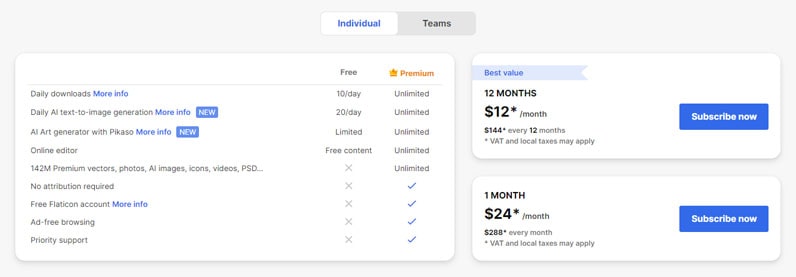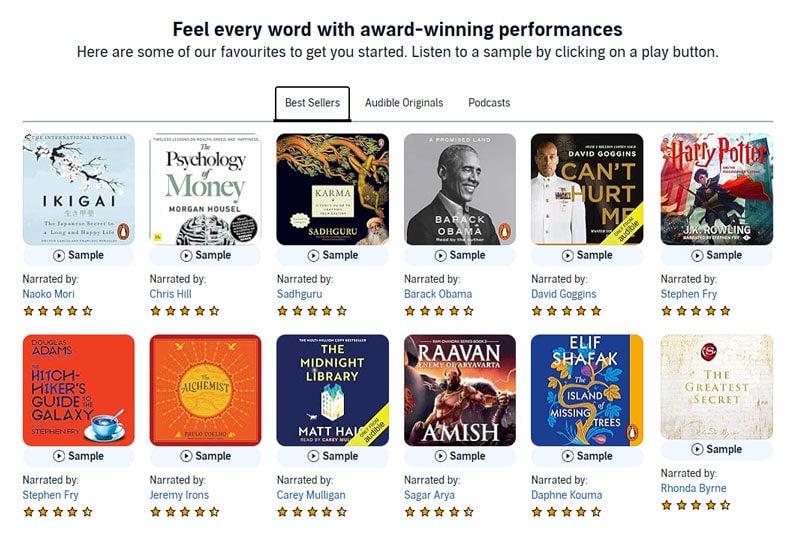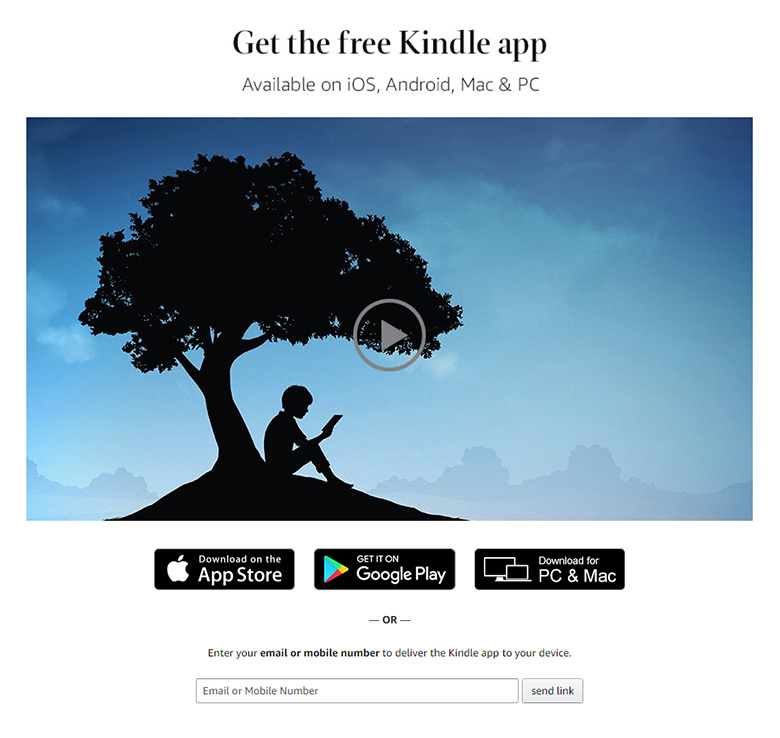A Digital Product simply means any asset that can be stored(and owned) digitally. So whether it is ebooks, media files, digital photos, or games ― anything that users can consume and save on their digital devices, are all examples of digital products.
With the increasing shift towards digitalization and the rising capability of digital devices, there is consistent demand for more physical products to be turned into digital goods. So books changing to eBooks, CDs into audio files, or the more recent phenomenon of art as digital goods ― the trend is expected to continue.
Hence the growing importance of digital products marketplaces in the eCommerce ecosystem. Since these foster an ecosystem to serve users a variety of digital consumables, they give entrepreneurs a lucrative business proposition.
An aspiring marketplace owner can open a niche-specific multivendor marketplace or a complete digital downloads marketplace with all these categories.

A digital products marketplace gives you greater flexibility. Because, unlike the case of physical goods, where the third-party sellers need to maintain an inventory of physical goods, digital goods marketplaces can host these in the virtual world.
This greater flexibility means there are multiple ways one can shape operations of the marketplace. Moreover, the role users play, the way in which they interact and finally transact can also be designed in a number of ways. In other words, a digital goods marketplace can work on multiple operative business models and revenue models.
Let's start with the most important consideration for a business ― revenue models in a digital goods marketplace:
A marketplace can generate fixed revenue from the sales on the marketplace in the following ways:
Like any brick and mortar store functionality, the buy-once business model means that the customer will buy a product from a digital goods marketplace once, and it can either be licensed or owned. Although, fundamentally in most eCommerce business models the product is sold once.This model works great for those products that are designed to be consumed by single users like exclusive ready-made logos.

Website: Freepik
Digital Goods Marketplace can also curate product bundles based on specific themes. With the digital nature of goods, it is easier to do so. The bundle is priced lower than the sum of individual products MSPs. This encourages consumers to go for a bundled product bundle, generating higher revenue for the business.
A digital good marketplace can generate recurring revenue in the following ways:
The membership model has become increasingly popular for digital products. This model has become popular because the revenue of the membership model can be more predictable than the sales of each product, which may or may not happen. Moreover, this is easier to execute since development/procurement costs for most digital goods are lower for the sellers on the platform.

Website: Audible
This model is for those website owners who want customers to check all the products of their websites and do not want to go with membership options. In this business model, the customer can download whatever they want with a limitation set. This can be your primary business model or an additional business model. All-access models can offer standard digital products, but additional premium products can be charged on a higher fee.

Website: Kindle
Maximizing revenue in digital product marketplace extends beyond initial purchases. In this case, a marketplace can also earn from complementary services or activities. Let's see how:
Digital Goods marketplace that offers products such as eBooks or software can give existing consumers updates at lower costs. This allows businesses to earn revenue from existing consumers.
This is again a revenue stream that can be a part of revenue strategy for digital goods marketplaces. Some examples can include:
…and many others.
Avoiding Duplicacy : Digital products are files that can be stored digitally. Once stored, there is a possibility of duplication. This is especially true in some cases more than others. Circulation of duplicate files can result in loss of revenue for both the sellers and the marketplace owners. Solution : Digital Products can be offered with unique encrypted product keys. This would prevent users from duplicating the digital files, as the same would be useless without the product keys.
Platform security : A digital goods marketplace can attract attention of malicious activities. Here the attackers tend to gain more with access to the digital goods sold on the platform. Solution :The best answer to attacks is preparation in terms of platform robustness. Ensure that your platform is built with industry standard security compliances, and has features to ward off malicious attacks.
Preparing for scale : With no geographical boundaries, digital goods marketplaces can attract significant user footfall, bringing traffic in high volumes. In such scenarios, your platform will be tested to its limits. Solution:Make sure that your digital products platform is tested to support traffic. Especially the volume that your business forecasts predict. This will help you in sustaining satisfactory user experience with increasing popularity of your business.
Doing too much too early : You have a business plan, to execute that plan you want to include all features and their functionalities that the competition has ― and probably even more. You launch this business, only to find the users may prioritize some other features that you haven't included. Solution:Take it easy. Business success hinges on iterative increments. This allows you to stay fleet footed and respond to real world user feedback, building a dynamic digital products business. This approach is also termed as the MVP (minimum viable product) approach. You will need the support of reliable eCommerce customization services to execute such a plan.
Suggested Read: How to start with a digital products eCommerce business
Support for multiple revenue streams : As discussed, a digital goods marketplace allows you to earn revenue via multiple channels. Buyers in this domain also look for multiple options to procure these products. For instance, the option to buy multiple products with an access pass. So the support for multiple revenue streams will be integral to the success of a digital goods business, allowing you to find the best mix of available revenue streams for your business.
Review And Rating : Trust is the pivotal underlying factor that triggers purchase decisions. In the absence of physical presence or any face-to-face interactions, social proof is key to the success of a digital goods marketplace. The customers should be able to give the seller and marketplace review and rating according to the perspective.
Multi-Currency And Multilingual : Since there are no physical delivery and logistics involved in a downloadable products marketplace, these have a potential to scale rapidly. This means that your business can scale and operate across geographical borders with ease. To give all users access to the marketplace in languages they are comfortable with and allowing transactions in their preferred currencies ― you need to consider adding Multilingual and Multicurrency features.
Marketing Features : Unlike a brick-and-mortar store, a digital marketplace is practically invisible until it is marketed and put across in front of the target audience. Even more so for the digital goods marketplace, where the products too are intangible. Hence all features that enhance the visibility of the website for SERPs and tools that offer email marketing capabilities, go a long way in catalyzing the success of an eCommerce business.
Advanced Search : Once the business scales, a digital product marketplace can have a good volume of digital products available on its platform. For users, searching for their desired product might seem a tedious task. To smoothen this process, offer advanced search capabilities on your platform. With the help of this, users will be better able to find the product they are looking for. This helps in shortening the buyer journey, fostering a better buying experience, and catalyzing higher conversions.
Digital File Previews : An important consideration for the buyers, adding this capability can give buyers the option to preview the digital file before completing the purchase. This also acts as a catalyst for buyers to complete the purchase, as they can gauge the product better with this option.
The approach taken for the digital products marketplace significantly impacts the factors contributing to its success, such as adaptability, scalability, and versatility. There are two main options available: the traditional custom development approach and the modern approach of option for turnkey digital products marketplace software. Let's explore these alternatives in detail.
Building a digital products marketplace from scratch by assembling an in-house team of experts or outsourcing the development work can be one way to go. However, this approach comes with few hassles including the substantial time and financial investments required. In addition, it leads to longer time-to-market for business as well.
On the other hand, choosing ready-to-use digital products marketplace software comes equipped with essential features and functionalities. This significantly reduces the development costs and time when compared to the legacy custom-development approach. It also allows businesses to market quicker and enables them to focus on integrating unique capabilities that their competitors might not have targeted yet.
Suggested Read : Case study of a contemporary Yo!Kart-powered gaming products e-marketplace
The success of the digital products industry is a direct outcome of the way the technology sector has been progressing. Supported by better digital infrastructure, better device capabilities and an increased adoption to digital, change is not just apparent but forthcoming. From a global perspective, the future promises increased digital goods adoption.
Amid this evolution, entrepreneurs starting with a digital goods business on cue, stand to benefit from picking the right wave ― that promises to keep their eCommerce aspirations moving in the right direction for even more opportune times to come.
A digital goods marketplace is an eCommerce platform where third-party sellers offer a wide range of digital products such as software, eBooks, music, graphics, and more. Buyers get a website to explore, purchase and download these digital goods. The sellers get a platform to sell digital goods (or in the case of creators, showcase and sell their digital creations) to a global audience.
How do I start a digital products marketplace?To start your own digital products marketplace, consider the following steps:
Read How to Start an eCommerce website for digital products for more information regarding this
Which are the popular players for digital products?You can get inspiration from some leading players to build your eCommerce platform for digital products. Some of these are:
Amazon : A truly global eCommerce platform, even when it comes to digital products. It leverages its popularity to sell eBooks, music, and a lot more.
Envato : A digital goods marketplace offering a wide range of creative resources including themes, templates, and digital tools.
Creative Market : A versatile platform for independent sellers(creators) to sell unique design assets, fonts, graphics, and more.
Yes, Yo!Kart can help build a digital products marketplace like Creative Market and Envato. It has features for both the marketplace operator and the sellers to offer digital downloads on the platform. Furthermore, the software comes pre-integrated with multiple business APIs to broaden the scope. Hence Yo!Kart is a leading marketplace software for digital products.